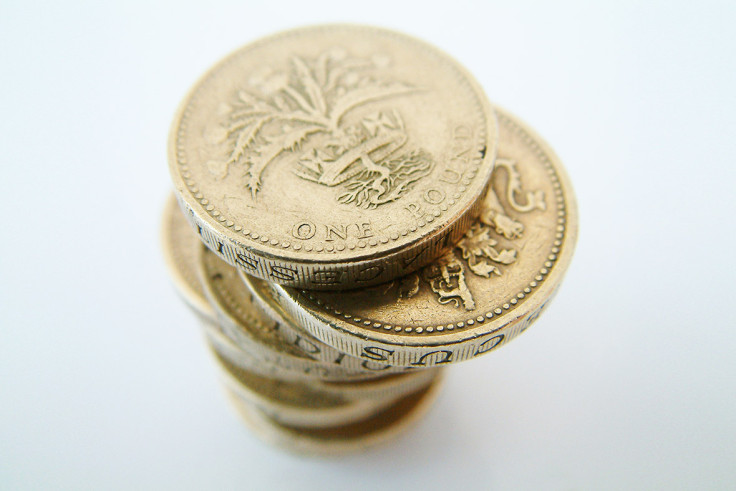FX Focus: Pound gains ground as investors await inflation data
Sterling shrugs off last week's decline to edge higher against euro and dollar.

The pound gained ground on Monday (10 April), recovering the losses recorded at the end of the previous session, as investors awaited some key economic reports over the coming days.
Having ended last week on a downbeat note amid signs Britain's economy began slowing down in February, by early afternoon sterling was 0.16% and 0.22% higher against the dollar and the euro respectively, trading at $1.2391 and €1.1720.
Following last week's disappointing report on the manufacturing and construction sector, UK traders will focus their attention on the latest UK inflation report, which is out on Tuesday (10 April).
"A stronger than expected reading from the UK could trigger sterling upside if it manages to lift UK bond yields," said Kathleen Brooks, research director at City Index.
"The yield spread between UK and US yields remains stubbornly low, but did manage to recover at the end of last week on the back of the very weak US payrolls report. Sterling's recovery this morning may be a delayed reaction to this and if the yield spread recovers highs."
Ahead of the report, a survey published by Visa and IHS Markit showed consumer spending in the UK grew at the slowest pace in more than three years in the first three months of 2017. Spending climbed 0.9% compared to a year earlier in the January to March period, considerably slower than the 2.7% growth recorded in the preceding three months.
Paresh Davdra of RationalFX added: "The data paints a gloomy picture for the strength of the UK economy, which some analysts predict will lose steam as Brexit negotiations progress. What the effect of this will be on the pound remains to be seen."
Elsewhere, the euro was on the back foot, amid ongoing uncertainty over the French presidential election. Monday marked the first "official" day of the presidential campaign period and with the first round of voting now less than a fortnight away investors seem to have been spooked by the emergence of the far-left Jean-Luc Melenchon as a potential candidate.
The common currency was 0.14% lower against the dollar, trading at $1.0576, and analysts warned the euro could fall even lower as the election approaches.
"The French – German yield spread has started to rise once again, and this is weighing on the euro at the start of this week, which has fallen below $1.06," Brooks added.
"It is hard to see how the euro can recover ahead of this crucial election. Key support lies at $1.0340 – the low of the year so far."
Meanwhile, the dollar edged higher against most of its rivals, shrugging off last week's disappointing non-farm payrolls report, which showed the world's largest economy created 98,000 jobs in March, falling way short of the 175,000 analysts expected and recording one of the slowest rate of growth in almost a year.
The greenback was 0.28% and 0.19% higher against the yen and the Australian dollar, trading at ¥111.40 and AUD$1.3348 respectively and rose 0.12% against the Swiss franc to CHF1.0103.
© Copyright IBTimes 2025. All rights reserved.






















